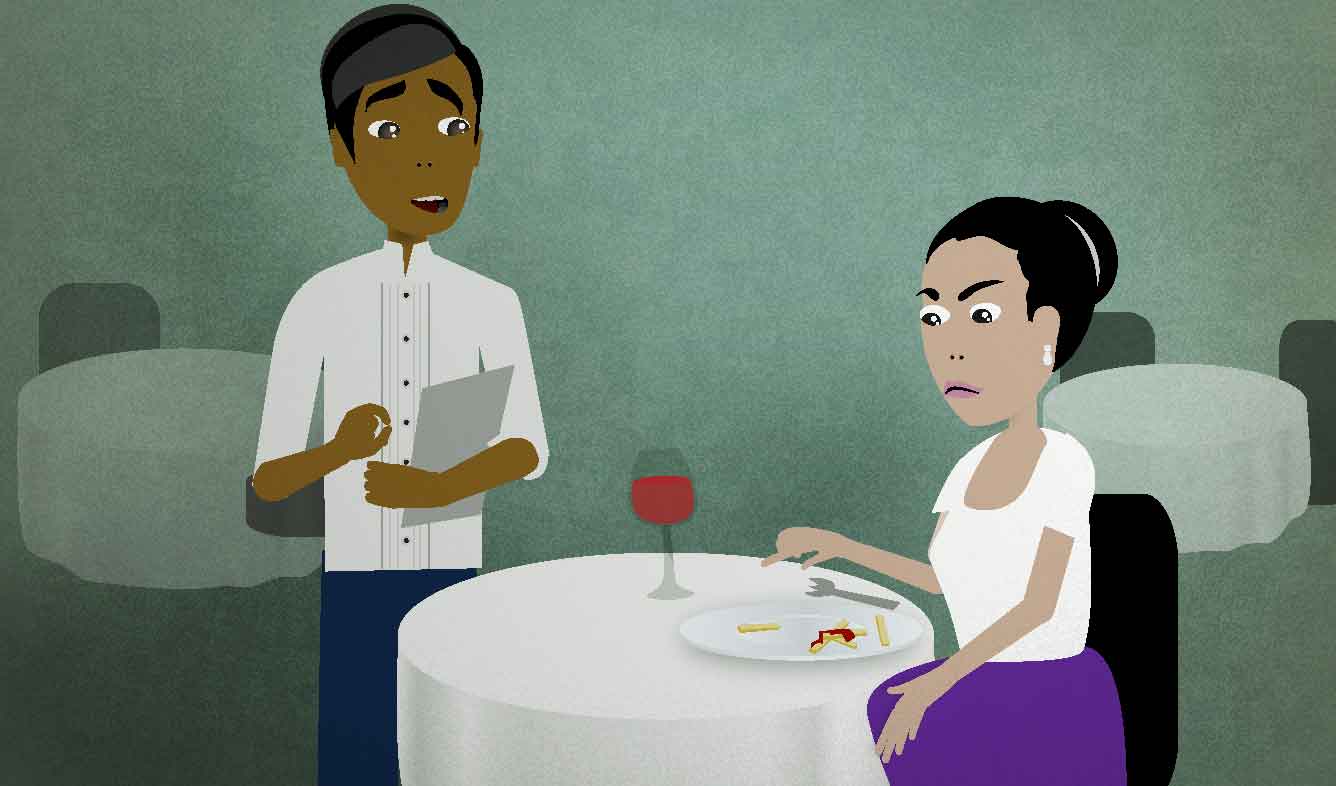“I'm very sorry that it didn't meet your standards.”
You are a waiter at a nice restaurant. A customer complains that her food wasn't good, but she's already eaten all of it. You want to apologize, but you can't bring her another meal, so you say this to smooth things over.
I'm very sorry that it didn't meet your standards.
Want Video and Sound? Follow us on YouTube

I'm very sorry
"I'm very sorry" is a very formal way to tell someone that you're sorry. Here's how it sounds in different situations:
In a situation like the one above, it sounds polite. It's polite to use formal English with customers and people you don't know well.
With close friends and family members, it can sound like you're angry if you use overly formal English. So if you tell your close friend:
I'm very sorry.
...your friend may actually think that you're not sorry at all! It's better to say something like:
However, if you're talking to someone close to you AND it's a formal situation (like if you're apologizing in front of a large group of people), you can say "I'm very sorry."
meet (someone's) standards
The example at top, "I'm very sorry that it didn't meet your standards," means "I'm very sorry that it wasn't good enough for you."
To meet someone's standards means to be good enough for them. Your "standards" are the basic level of quality that you expect and require. Some people have very high standards, while others have lower standards.
Another example of the word "meet" used this way is to "meet (someone's) expectations". This means to be as good as someone expected:
After waiting for so long to get one, I was disappointed to find that the iPhone didn't really meet my expectations.
